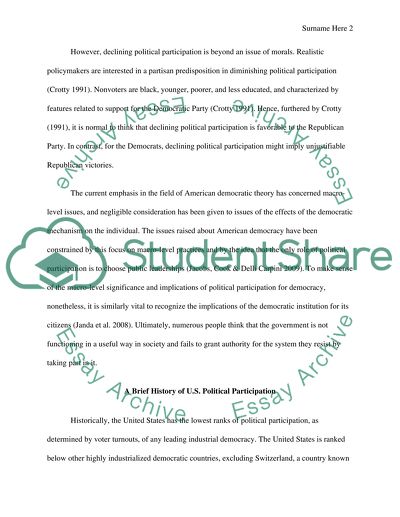Cite this document
(“Nature and Causes of the Declining Political Participation in the Research Paper”, n.d.)
Retrieved from https://studentshare.org/history/1426321-nature-and-causes-of-the-declining-political-participation-in-the-united-states
Retrieved from https://studentshare.org/history/1426321-nature-and-causes-of-the-declining-political-participation-in-the-united-states
(Nature and Causes of the Declining Political Participation in the Research Paper)
https://studentshare.org/history/1426321-nature-and-causes-of-the-declining-political-participation-in-the-united-states.
https://studentshare.org/history/1426321-nature-and-causes-of-the-declining-political-participation-in-the-united-states.
“Nature and Causes of the Declining Political Participation in the Research Paper”, n.d. https://studentshare.org/history/1426321-nature-and-causes-of-the-declining-political-participation-in-the-united-states.


